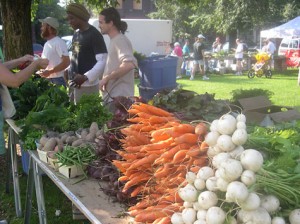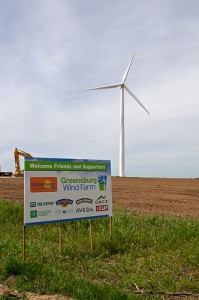
The title of this post is taken from the name of a favorite book from the 1970’s about alternatives to traditional higher education. Along with practical advice for autodidacts, it brims with inspiration and attitude for those who want to plumb the depths of knowledge on their own or in small groups.
Right now, the problem of alternatives touches on more basic things, like jobs and the economy. One of the most pernicious things we hear in the media every day is that the economy cannot survive without mega-sized financial and other corporate institutions, which is one reason they are allegedly “too big to fail.” We have no other choice. Smile and know your place.

But something interesting is happening. Quietly, with minimal mention in the mainstream press (surprise!) new models of living and working are growing out of the ashes left behind by corporate rapine or natural disasters. Greensburg, KS is an exception; it has generated considerable attention because of how it plans to rebuild itself. The city was leveled by a tornado, but almost literally before the dust had settled the city leaders decided that the new Greensburg would be built green. With 90% of the city wiped out and ten of its residents killed in the storm, the townspeople have still directed their native streak of independence to rebuild in a way that looks to the future. Strong Kansas winds will be harnessed to generate electricity. Buildings will be designed for energy efficiency, and the downtown area will be more pedestrian-friendly.
Detroit is also seeing green activism working and planning to make a more sustainable community out of the wrack and ruin that was left behind when the economy collapsed. They are still feeling their way, creating community gardens, painting local murals, starting small local businesses and building ties between remaining segments of of the community that didn’t speak to each other before.
But the real interesting stuff, to my way of thinking, is the development of whole new corporate models. In addition to businesses that adopt Employee Stock Ownership Plans to democratize company ownership, an entirely new form of incorporation is now available. Gar Alperovitz reports:
In certain states, companies that want to brandish their new-economy values can now also register as B Corporations. B Corp registration (the “B†stands for “benefitâ€) allows a company to subordinate profits to social and environmental goals. Without this legal authorization, a CEO could in theory be sued by stockholders if profit-making is not his sole objective. Such status ensures that specific goals are met by different companies (manufacturers have different requirements from retail stores). It also helps with social marketing and branding. Thus, King Arthur Flour, a highly successful Vermont-based, 100 percent employee-owned ESOP, can be explicit, stating that “making money in itself is not our highest priority.†Four states—Maryland, Vermont, New Jersey and Virginia—have passed legislation that permits B Corp chartering, with many others likely to follow.
My sense is that the larger, traditional economy is not going to continue to “grow” so long as corporate profits continue to soar amid our disastrously high unemployment. I’m also not sanguine that any deal on the debt ceiling will benefit anyone but the über-rich and will in fact diminish the rest of us. This is why it is so vitally important to figure out new ways to conduct business and commerce, to live and work, in ways that shut toxic corporatism out of the picture. They may be too strong to fight nationally, but in our little corners of the world we can still build a new future without them.
Something to ponder on Independence Day.

